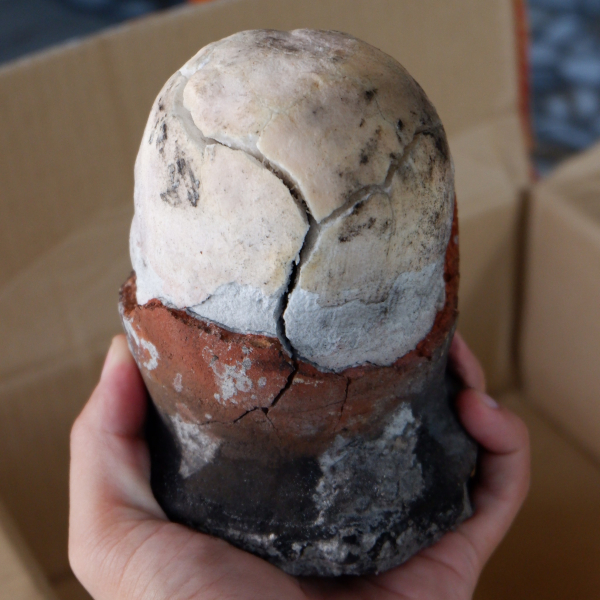Did you know that we Filipinos actually have our own rare artisanal sea salt made in Bohol?
Pinoy netizen John Sherwin Felix is enlightening all those who may not be familiar with the locally-made salt, called Asin Tibuok, on his Facebook post in which he discussed extensively what it is, where it’s from, and where we can get it.
“My package from Bohol has arrived! One of the rarest food items in the Philippines, Asin Tibuok. Wala siyang kapareho sa buong mundo [There’s nothing like it in the whole world] (similar to Korean black salt/bamboo salt, but they are totally not the same), it looks like a dinosaur egg and [is] 100% Filipino,” he began on his post.
Asin Tibuok is made using a labor-intensive, pre-Hispanic method of production. Because this tradition has been passed on from generation to generation, it’s unclear what its origins are but it’s now only being produced in small coastal towns — primarily in Alburquerque, Bohol.
“If you are wondering ano lasa siya, malayo sa lasa ng table salt. It has [a] sharp smokey taste and [a] faint fruity flavor. You can powderize this and use as a regular salt (for dishes, extra flavor for vinegar etc.) or break it into big chunks na pwedeng i-dip sa lugaw [that you can dip in lugaw] (unique method sa pagpapalasa [of adding flavor]). Or i-grate ‘yung malaking tipak [Or grate the whole chunk] over food, as a finishing salt. Pwede rin kayo bumili if gusto n’yo idisplay sa bahay [You can also buy it to display in your house], as a conversation starter,” Felix continued.
Unfortunately, as Felix pointed out, this artisanal salt is “on the verge of extinction” due to its difficult and slow production process. As local general store Ritual PH explains:
Coconut husks are soaked for 3 months in saltwater pools by the mangrove. These husks are burnt in a highly controlled manner. The ashes are placed in large filters. More seawater is poured through the ashes, leaching the salt to make a very highly concentrated brine.
Specially made clay pots are placed over a wood fire. The concentrated brine is poured continuously for 8 hours into the bubbling pots. The saltmaker keeps a close eye on evaporation, as the pots will crack if not filled. The result is a smoky orb of salt that weighs roughly a kilo.
“Kaya [That’s why] please let’s support our local industries,” Felix said. “Please support our heritage food. Hindi lang itong asin tibook, pati na rin ang ating [Not only the Asin Tibuok but also our] cultivars, local spices, Philippine traditional vinegar etc. Let’s buy from small farms and businesses. Marami sa ating Filipino ingredients ay nanganganib mawala dahil sa lack of support at sa competition sa commercialized products [Many of our Filipino ingredients are disappearing because of lack of support and competition with commercial products].”
Those who want to get the Asin Tibuok for themselves can do so by buying directly in Alburquerque, Bohol, contacting Marijel Nobong (from whom Felix sourced his supply), or purchasing online from Ritual PH.
Read his full post below:
(ALSO READ: 12 Sustainable Products to Buy That Can Help Save Mother Earth)
What other Filipino ingredients should everyone know about? Share them in the comments!
Do you have a story for the WhenInManila.com Team? Email us at story.wheninmanila@gmail.com or send us a direct message at WhenInManila.com Facebook Page. Interact with the team and join the WhenInManila.com Community at WIM Squad! Get the latest news about the Philippine Entertainment industry and join the WIM Showbiz Facebook group! We also share our stories on Viber, join us!







